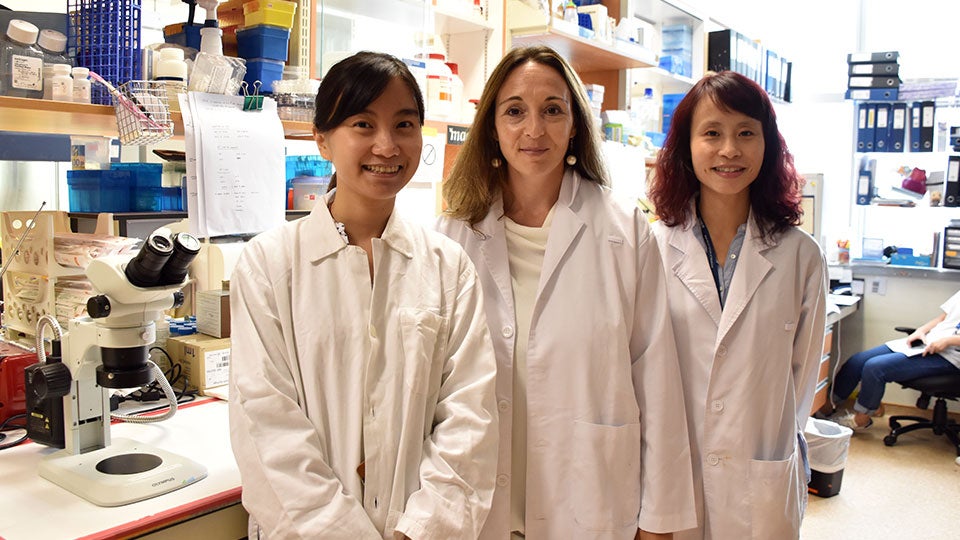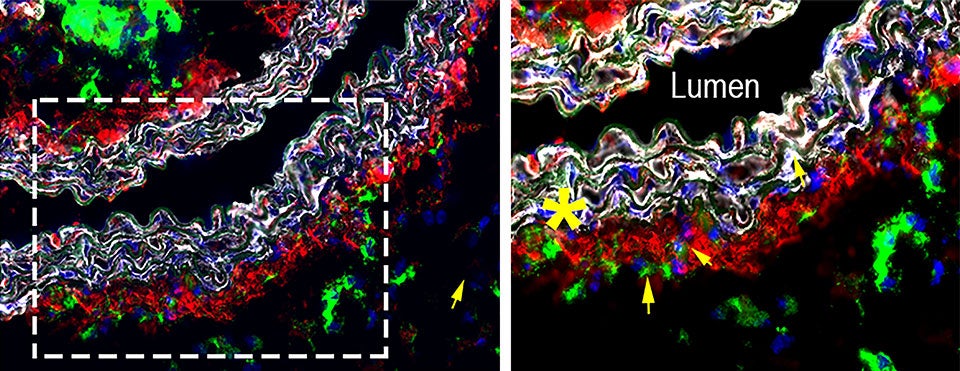Key to artery health lies in LYVE-1 Macrophage
Published: 15 Aug 2018

Arteries such as the aorta actively transport oxygenated blood, nutrients and cells throughout the body to keep our tissues functioning normally. Damage to the arteries can result in life-threatening cardiovascular diseases. A major type of damage involves hardening or stiffening of the vessel walls. This phenomenon, known as arterial stiffness, results in raised blood pressure and an increased risk of cardiovascular diseases such as atherosclerosis and aneurysm. However, the causes of arterial stiffness are still largely unknown.
A team of researchers at National University of Singapore’s Yong Loo Lin School of Medicine (NUS Medicine), led by Associate Professor Veronique Angeli, has identified a population of cells called macrophages that coat the outer walls of healthy arteries and express a protein called LYVE-1. The researchers found that when these cells were absent, arteries accumulate collagen and lose their elasticity, becoming stiff and inflexible. These findings suggested that the macrophages protect our arteries from becoming stiff, a concept that the team proceeded to prove. They showed that the macrophages interact with another type of cell residing in the artery called smooth muscle cells, which produce collagen. The interaction between the two types of cell reduces production of collagen by the smooth muscle cells.
Assoc Prof Angeli and team showed that the LYVE-1 protein on the macrophages is actually responsible for this protective effect. LYVE-1 binds to a molecule called hyaluronan expressed at the surface of smooth muscle cells and this interaction is required for the degradation of collagen by matrix metalloproteinase 9 (MMP-9).
In summary, this study has unveiled a population of cells associated with blood vessels that protect our arteries from detrimental changes to their structure and function. It also uncovered the novel mechanism by which these macrophages exert their protective effects. The work has clinical implications for both aging and cardiovascular diseases because arterial stiffness is associated with aging and precedes cardiovascular diseases such as atherosclerosis and aneurysm. This knowledge should help in the development of new treatments or the improvement of existing treatments for arterial diseases.
See press release.

News Coverage
- Genetic Engineering & Biotechnology News, 30 July 2018
- Asian Scientist Newsroom, 13 August 2018
- Channel NewsAsia, 14 August 2018
- Channel 5 News, 14 August 2018
- Channel 8 News, 14 August 2018
- Channel U News, 14 August 2018
- Vasantham News, 14 August 2018
- Suria News, 14 August 2018
- 938NOW, 14 August 2018
- Capital 95.8FM, 14 August 2018
- Warna 94.2FM, 14 August 2018
- Oli 96.8FM, 14 August 2018
- Lianhe Zaobao, 16 August 2018, p10



